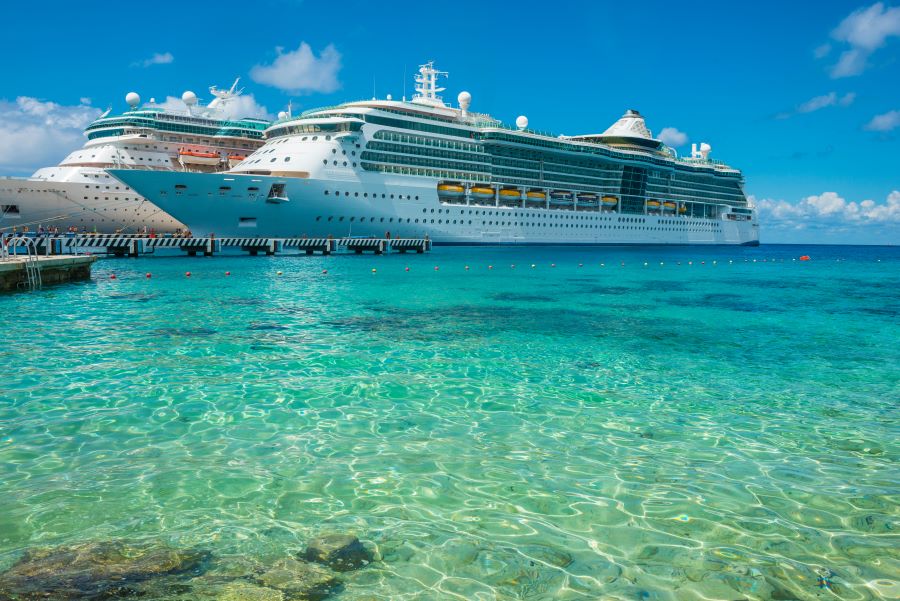Cruise Options for UK Travellers: What to Know Before Planning Your Next Voyage
For UK travellers interested in cruise holidays, a wide range of destinations and experiences are available—from Mediterranean getaways to scenic Arctic expeditions. This article explores what many are considering when researching cruises, including itineraries, booking flexibility, and onboard features.

What Are the Most Popular Cruise Destinations for UK Travellers?
The Mediterranean consistently ranks as the top cruise destination for UK travellers, particularly during the summer months. Barcelona, Rome (Civitavecchia), Venice, and the Greek Islands attract those seeking a perfect blend of culture, cuisine, and warm weather. The popularity of these routes stems from their accessibility and the ability to visit multiple countries without unpacking more than once.
Northern Europe follows closely behind, with Norwegian Fjords cruises growing significantly in popularity. The dramatic landscapes, coupled with opportunities to witness the Northern Lights in winter months, make these voyages particularly appealing. Baltic cruises visiting Stockholm, Copenhagen, St. Petersburg, and Helsinki also remain consistently popular among historically-minded UK travellers.
Long-haul destinations such as the Caribbean and Alaska represent the third tier of popular choices. Caribbean cruises offer winter sun escapes, while Alaska’s wilderness appeals to adventure-seekers and nature enthusiasts during the summer season.
How Do Fly-Cruise and No-Fly Cruise Options Compare?
No-fly cruises departing from UK ports such as Southampton, Dover, and Liverpool have seen a surge in popularity, particularly following pandemic-related travel disruptions. These sailings eliminate airport hassles, have no luggage restrictions beyond the cruise line’s own policies, and reduce the overall stress of travel. They’re particularly attractive to families, older travellers, and those with mobility issues.
Fly-cruise packages, meanwhile, extend the range of possible destinations by flying passengers to international departure ports. These combinations allow UK travellers to access more exotic itineraries, including Asian cruises from Singapore, Australian voyages, and South American adventures. While they involve more complex logistics, they typically reduce overall travel time compared to sailing from the UK to distant destinations.
What Key Factors Do UK Residents Consider When Booking International Cruises?
Value for money tops the list of considerations for most UK cruise passengers. This doesn’t necessarily mean choosing the cheapest option, but rather assessing what’s included—dining options, entertainment, excursions, and beverages—against the total cost. All-inclusive luxury lines may carry higher headline prices but often provide better overall value than budget options with numerous add-ons.
Itinerary diversity and port time also significantly influence booking decisions. UK passengers typically prefer itineraries offering at least 8-10 hours in major ports rather than brief visits. Cruises featuring overnight stays in significant destinations like St. Petersburg or Venice command premium prices but deliver enhanced experiences.
Ship size and facilities represent another crucial factor. Larger vessels offer more entertainment options and typically appeal to families and first-time cruisers, while smaller ships can access more intimate ports and often provide a more personalized experience. UK travellers increasingly research specific ship amenities—from pool areas to specialty restaurants—before booking.
What Travel Documents and Insurance Requirements Apply to UK Cruise Passengers?
Passport requirements for UK cruise passengers can be complex and vary by itinerary. Most cruises require passports valid for at least six months beyond the return date, even for no-fly options. Some destinations require visas even if you’re only visiting for a day—particularly notable examples include Russia, Turkey, and Egypt, where visa processes might need to be completed weeks in advance.
Travel insurance specifically designed for cruises is essential rather than optional. Standard travel policies often exclude cruise-specific situations like missed port calls, itinerary changes, or medical evacuations at sea, which can cost tens of thousands of pounds. UK passengers should seek policies with at least £2 million in medical coverage and specific cruise endorsements.
For European cruises, the UK’s Global Health Insurance Card (GHIC, the post-Brexit replacement for EHIC) provides basic healthcare coverage in EU countries but doesn’t replace comprehensive travel insurance or cover medical repatriation costs.
What Types of Luxury Cruise Experiences Are Available to UK Travellers?
The luxury cruise market has evolved significantly beyond traditional white-glove service. Ultra-luxury lines like Silversea, Seabourn, and Regent Seven Seas offer all-suite accommodations with butler service, fine dining crafted by celebrated chefs, and exceptionally high staff-to-guest ratios—typically one crew member for every 1.5 passengers.
Expedition luxury represents one of the fastest-growing segments for UK travellers. These vessels combine adventure capabilities with premium comfort, accessing remote destinations like Antarctica, the Galápagos Islands, and the Arctic while offering amenities like spas, gourmet dining, and lecture programs featuring renowned experts.
River cruises have also entered the luxury market, with companies like Scenic, Crystal, and AmaWaterways offering butler service, balcony suites, and exclusive shore experiences on European waterways. These intimate vessels typically accommodate fewer than 200 passengers and provide immersive cultural experiences that larger ships cannot match.
How Much Should UK Travellers Budget for Different Cruise Experiences?
The cruise market spans an extraordinary range of price points, from budget-friendly options to ultra-luxury experiences.
| Cruise Type | Typical Price Range (per person) | What’s Usually Included | Popular Providers |
|---|---|---|---|
| Mainstream | £80-150 per night | Accommodation, main dining, basic entertainment | P&O Cruises, Royal Caribbean, MSC |
| Premium | £150-250 per night | Above plus better dining options, enhanced amenities | Celebrity Cruises, Princess, Cunard |
| Luxury | £300-500 per night | All of above plus alcoholic beverages, gratuities, some excursions | Oceania, Azamara, Viking |
| Ultra-Luxury | £500-1,000+ per night | All-inclusive (drinks, excursions, specialty dining, wifi) | Silversea, Seabourn, Regent Seven Seas |
Prices, rates, or cost estimates mentioned in this article are based on the latest available information but may change over time. Independent research is advised before making financial decisions.
Caribbean fly-cruises typically require additional budget for flights (£500-800 per person), while Mediterranean fly-cruises might cost £200-400 extra for airfare from the UK. No-fly cruises eliminate these costs but may include longer itineraries to reach distant destinations.
Conclusion
Cruise holidays offer UK travellers remarkable variety, from accessible Mediterranean voyages to exotic expedition adventures. The key to a successful cruise experience lies in matching your preferences—for destinations, onboard atmosphere, included amenities, and budget—with the right cruise line and specific ship. By considering factors like departure port, visa requirements, and comprehensive insurance coverage during the planning phase, you can focus entirely on enjoying the unique pleasures of life at sea once onboard.




